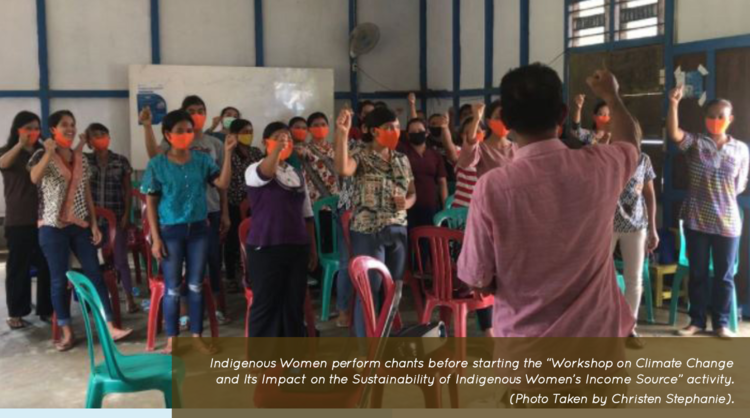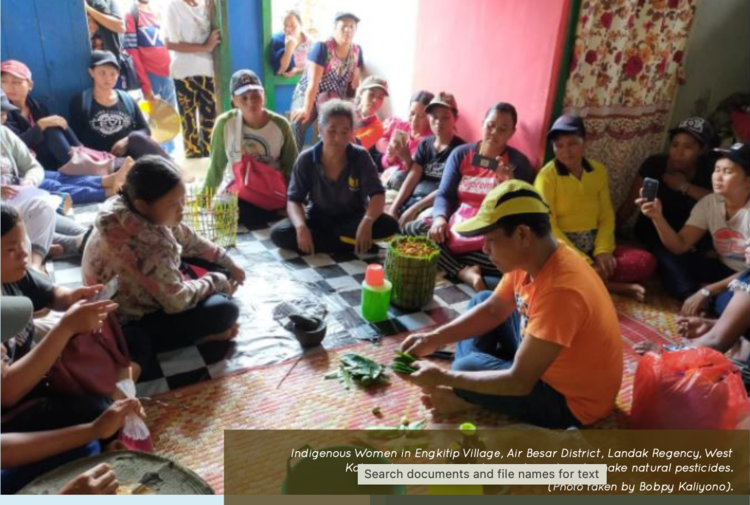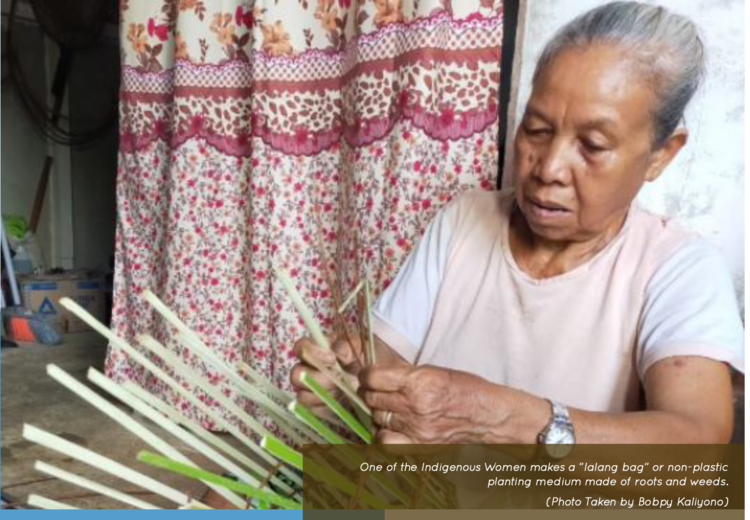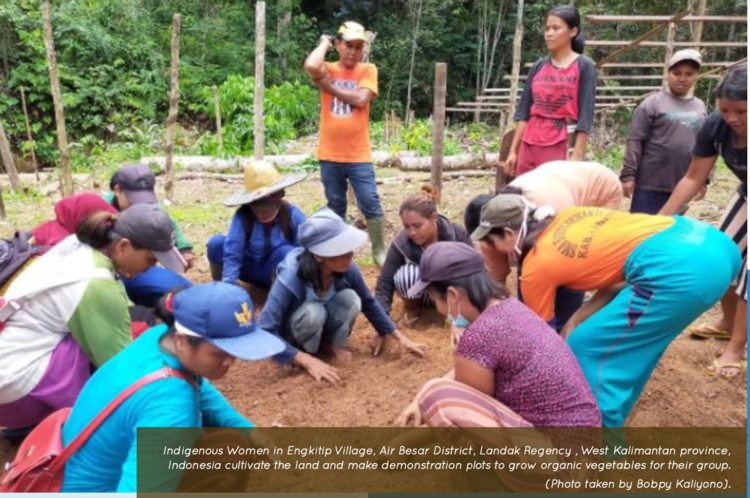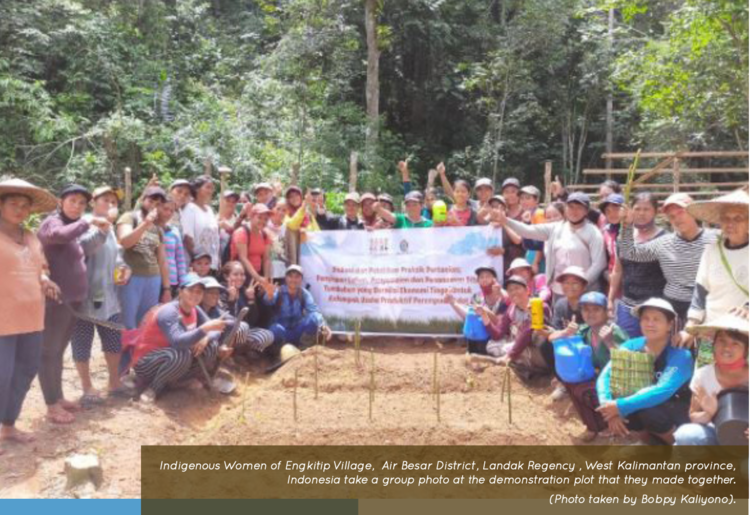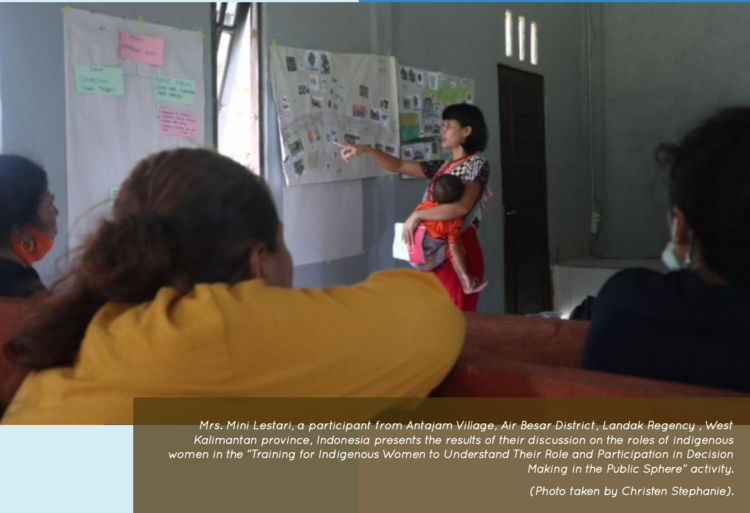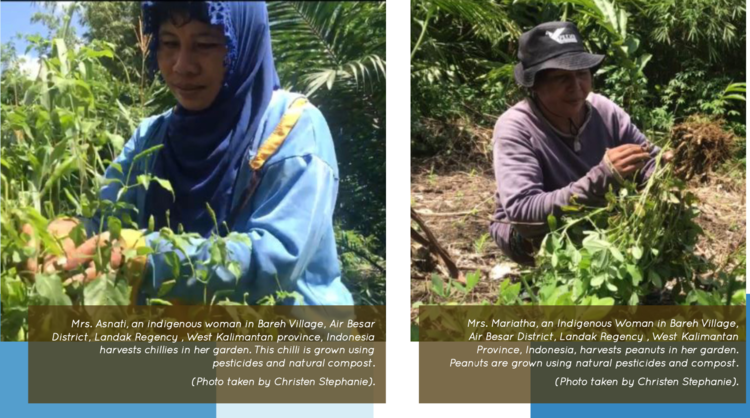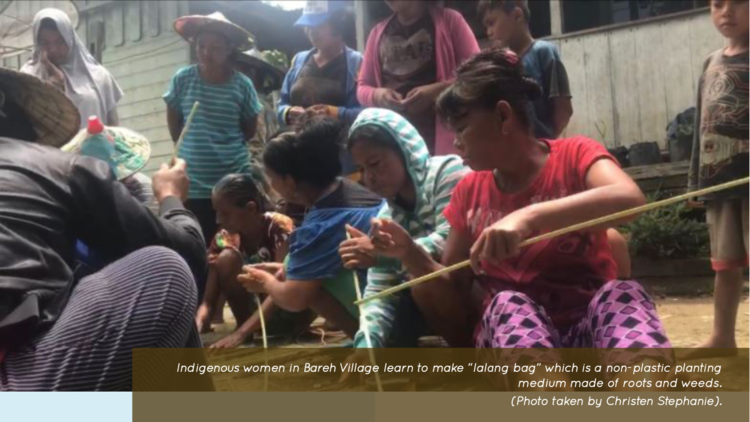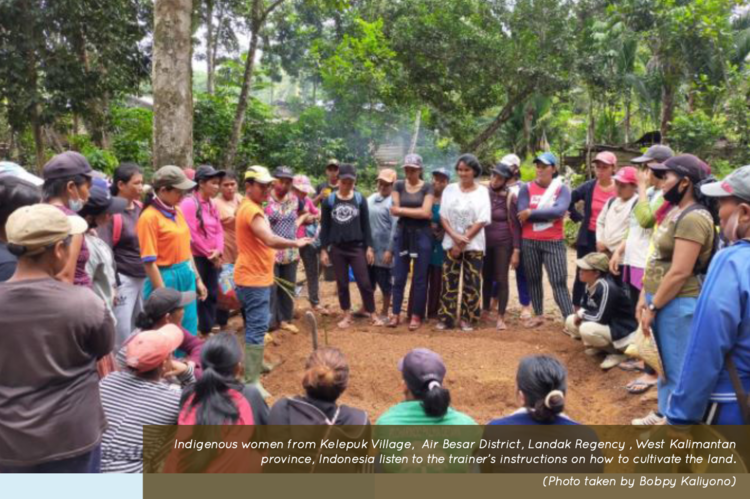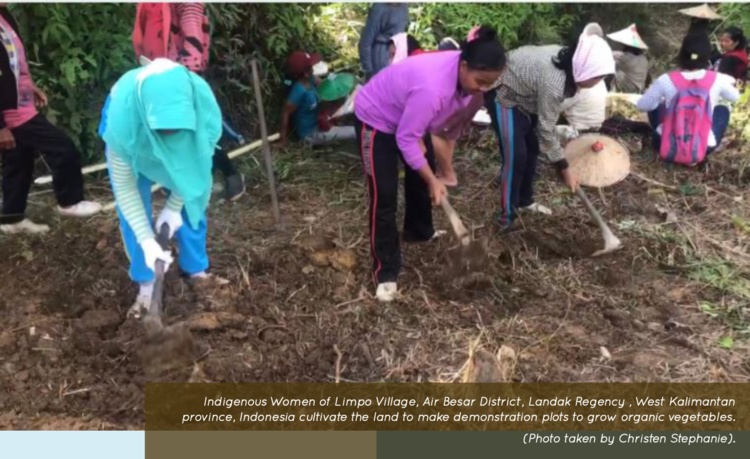In an indigenous community in Landak Regency, West Kalimantan, Indonesia, 22 year-old Mini Lestari had just completed her participation in a project. She shared her realizations thus, “A lot of changes were happening; nature was not as it used to be. Dry and rainy seasons would come erratically, making it difficult for us to start work. I just found out that everything is caused by climate change, which is caused by things in our daily lives.”
Mrs. Lestari was one among the participants who now understand better the important role of indigenous women in maintaining natural resources in the light of climate change and its adverse impacts. Women are vulnerable to these effects thus they realized that they have the right and obligation and the strategic role to be involved in nature conservation, protection of the environment and natural resources management using local and traditional knowledge.
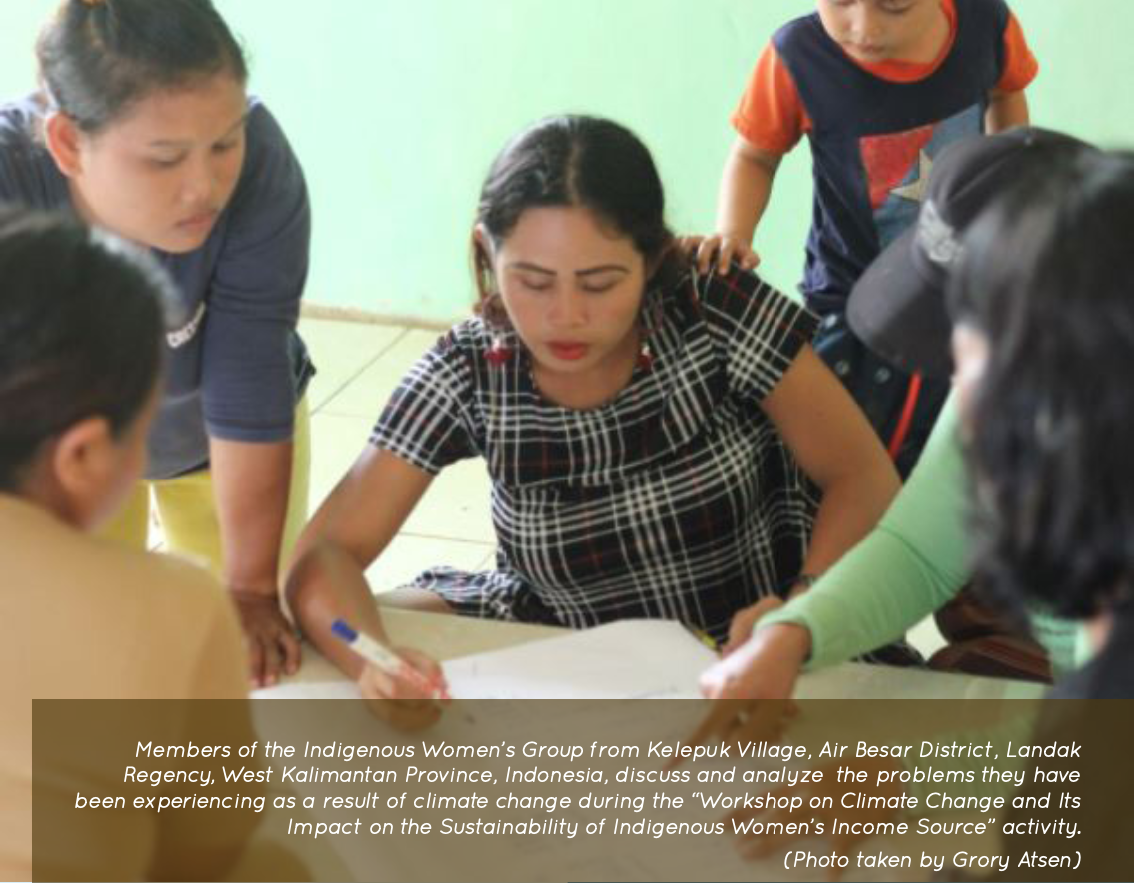
A workshop on climate change and its impact on indigenous women’s sustainable income source brought to light the adverse effects of pesticides and chemical fertilizers in agriculture and their relation to global warming. The challenge and efforts to increase indigenous women’s resilience to climate change were discussed.
“All this time, there has never been an opportunity for mothers in our village to gather and learn together. As women, our voices are often marginalized; we have never been invited to community meetings, and this is the first time we have space to speak up, even to the officials. Personally, I went through a lot of changes. The villagers saw me as a person who had the ability to lead. Finally, I was trusted to have a position in the village bureaucracy as a member of the Village Supervisory Board. It all started with my ability to lead women’s groups in our village.” These were the insights shared by Mrs. Wadah Wati, 39 years old, who was another project participant of a series of activities that encouraged women like her to be involved in decision making in natural resources management and in matters both domestic and public because they are part of the community and citizens who have the same rights as men. The power space which is the right of every woman, empowers them to be fully aware of their rights to opportunities and to express their opinions in public spaces.
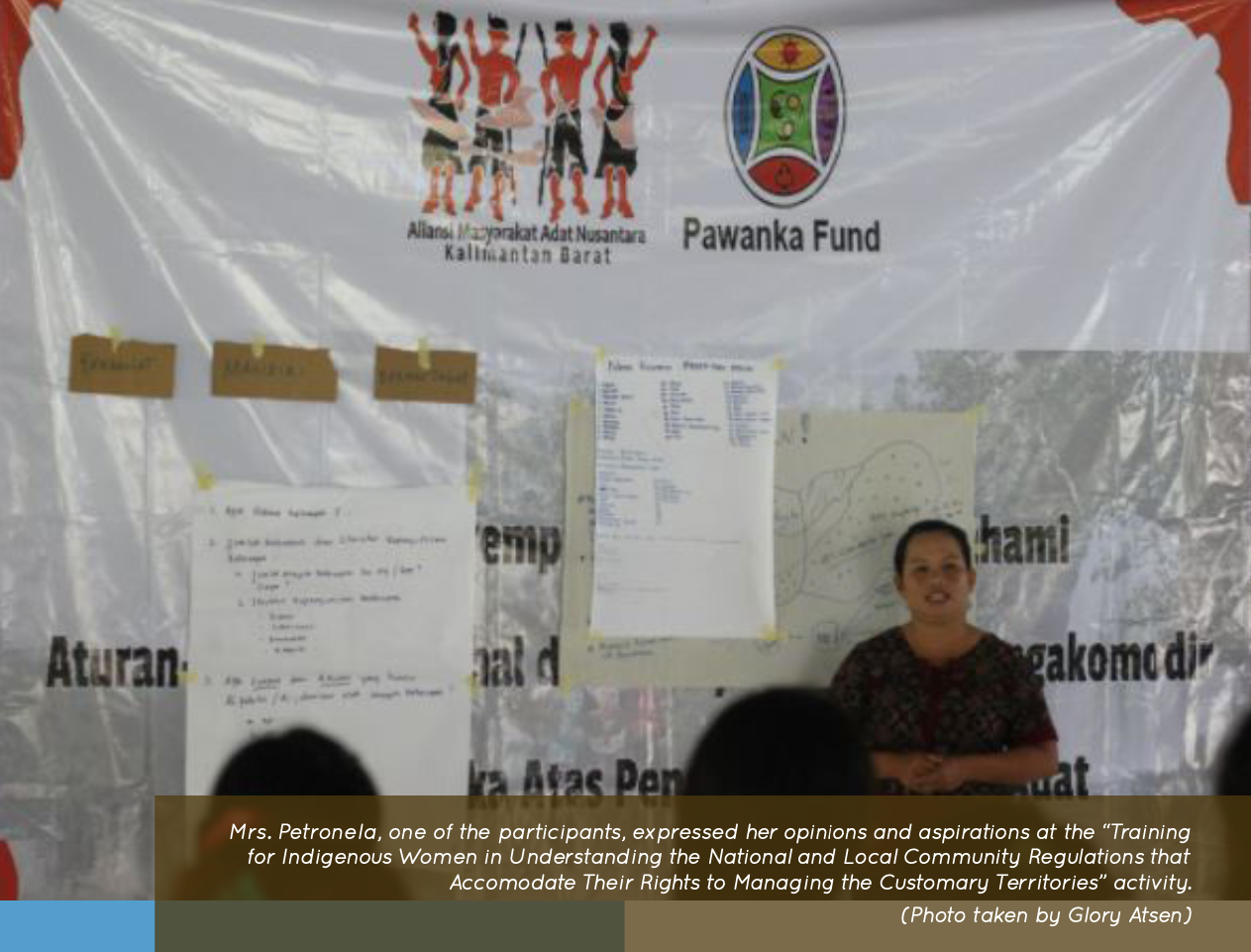
The Indonesian government’s recognition of Indigenous Peoples still has a long way to go, thus, support and involvement from various parties, including indigenous women are crucial. In Landak Regency, the project site, six groups of indigenous women from six villages made a collective agreement, and requested the Landak Regency government to urge the Central Government to immediately pass a law that recognizes indigenous rights. Additionally, because the management of customary areas is enabled through a series of regulations both by government and mutual agreements with Indigenous Peoples’ communities, the participants benefited from a training on the national, local and community regulations that accommodate their rights to manage customary territories. It is vital for indigenous women to understand these rules to avoid mistakes and allegations of violations by Indigenous Peoples.
A series of activities focused on increasing indigenous women’s economic independence. The participants learned to prepare proposals for business assistance from the government or donor agencies. Productive business groups were formed to plan and work on two enterprises with the greatest potential of sustainable management: cultivation of organic vegetables and management of non-timber forest products such as rattan and bamboo. “We learned new things. We have always cultivated our land to grow rice and depended on rice yields, but we can no longer do this because of climate change. We have to grow other crops that can grow in the rainy season such as vegetables, so that our food needs are fulfilled,” Mrs. Lestari declared.
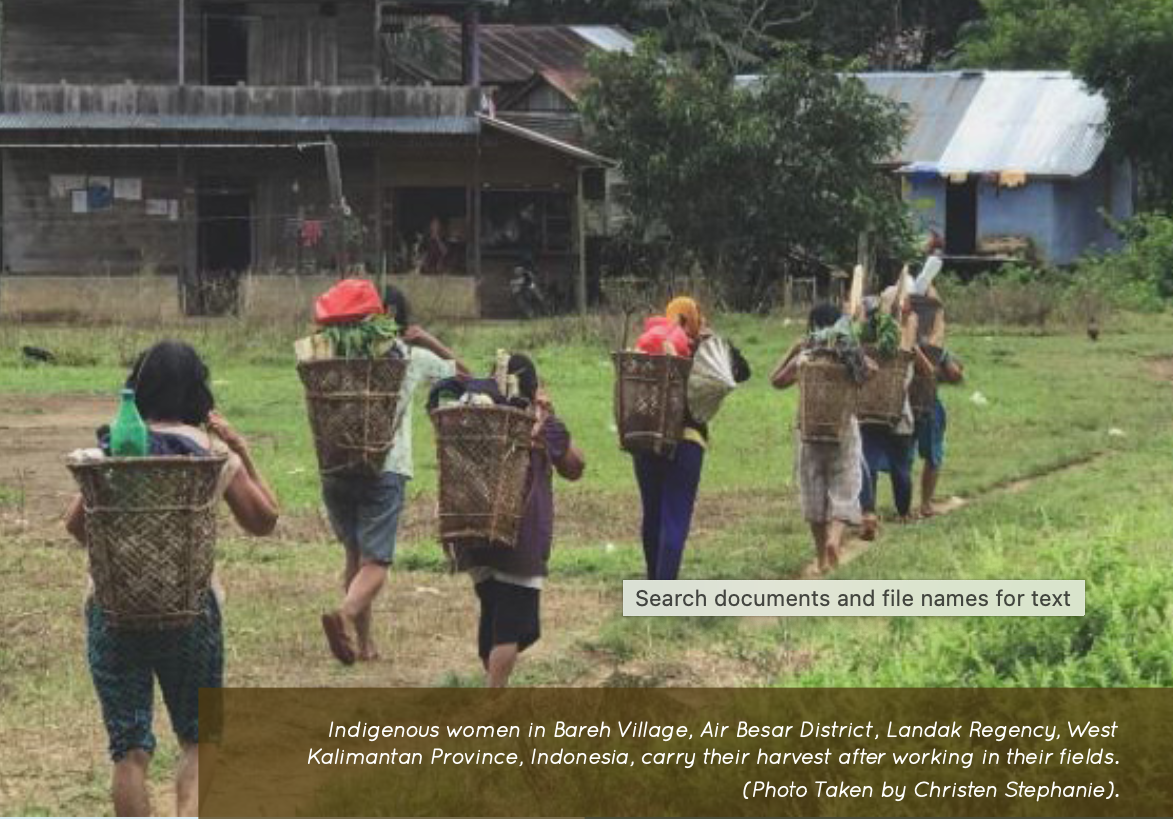
On the organic vegetable cultivation training, 32 year-old Mrs. Petronela shared, “We feel our knowledge is getting honed, especially in growing healthier organic vegetables. Going back to using natural ingredients lessens the budget we need for plant care. We make compost from household waste. We often heard about this before, finally we are able to try to make it more fertile and natural.” She and the other participants learned to prepare plots for seedlings of vegetables with high economic value for their productive business groups. They developed their local knowledge in managing soil, nursery guts, making compost and natural pesticides. They made non-plastic planting media from grass and plant roots so that they do not depend on pesticides and chemical fertilizers, which are drivers of climate change.
The indigenous women’s group did mapping of a customary area from planning to implementation. Hearings were held between their representatives and the head of the Landak Regency Environmental Service to facilitate the recognition of indigenous communities. They will encourage indigenous women to mobilize other villages to conduct participatory mapping of customary areas to come up with their village maps with territorial boundaries and avoid unilateral territorial seizures by irresponsible people.
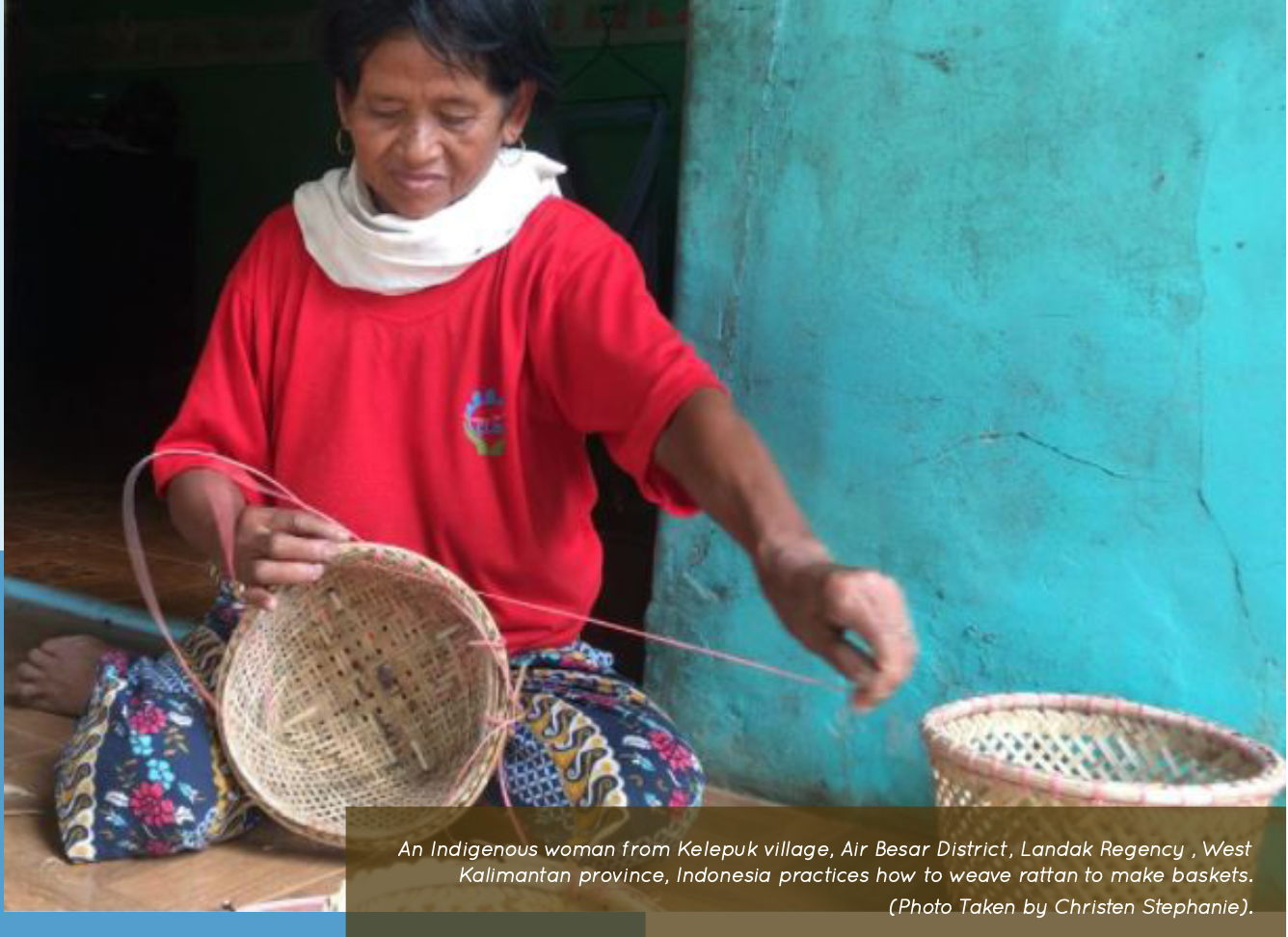
Persistent efforts have to be done to change the mind set of Indigenous Peoples who rely on oil palm and industrial plant product companies for employment opportunities to meet their needs. Instead, the resilience of indigenous women has to be enhanced to mitigate and reduce the impact of climate change. They now have opportunities to develop themselves, express their aspirations for their welfare and their community’s as well. Indigenous women can mobilize the community to revive the diminishing spirit of “gotong royong,” or cooperation and voluntary participation of many people required for activities.
(The project “Women’s Involvement in Solving Climate Change in West Kalimantan” was implemented by AMAN Kalbar in six villages (Sekendal, Limpo, Bareh,Antajam, Kelepuk, Engkitip) in Landak Regency in West Kalimantan in coordination with Perempuan AMAN and the support of PAWANKA Fund in the second half of year 2020.)

